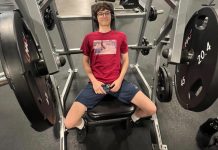By Regina Dispa

With ACTs, SATs and finals around the corner, studying becomes crucial for any student. Research shows that students with better study methods and strategies score higher on exams. Here are some tips for students to ace those tests and score well on tests and exams.
Pick a time and place and set up a study area: it should be quiet, comfortable, and distraction free. Next, find the best time in your schedule. Some people work more efficiently in the morning while others work best at night. Select the most suitable time and plan to study then, but do not study past bedtime since staying up late can make it difficult to study accurately.
“I like to study in the morning because I wake up with energy and ready for the day,” Harrison Skinner, junior, said.
Then, plan the time. Set alarms as regular reminders of study plans and breaks, or make a to-do list at the start of each study session to prioritize important things and organize the amount of time needed.
Stay motivated. Listening to relaxing music such as classical on low volume can help relieve boredom and increase concentration.
A new learning technique called “spaced repetition” suggests breaking up information into small chunks and reviewing them repeatedly over long periods of time. Moreover, flashcards are an effective way to memorize definitions; self-quizzing is one of the best ways to prepare.
“Flashcards are my favorite studying technique since it helps me identify and remember important things for tests,” Olivia Fasano, sophomore, said.
Research shows that information is stored more accurately when people write it out by hand. Start by recopying the most important notes from class on a separate sheet of paper. Reading the information out loud also helps the brain store information in the long-term memory.
Additionally, exercise, such as jogging, before studying will reduce stress and increase energy as well as concentration. Studying ahead of time without procrastinating is the best possible way to prepare for a test.
Take the initiative to use these tips and tricks when preparing for any assessment and feel proud when the results are higher scores.











